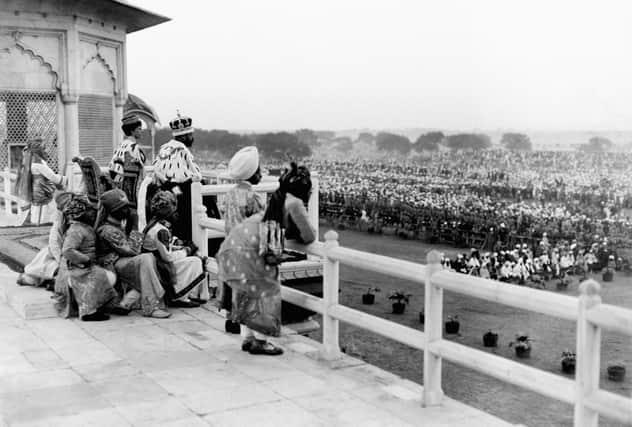Scotland must reckon with its colonial past - Foysol Choudhury


Scotland also, as a constituent part of Britain, was implicated in the British Empire’s colonial exploits elsewhere in the world, with devastating acts such as the use of detention camps, torture, sexual assault and brutal bodily harm by the British against the colonised populations sadly occurring.
During British rule in India, for example, widespread famine and poverty were also common, leading to the illness and tragic deaths of many. The British Empire also played a significant role in the transatlantic slave trade. People were forcibly transported from Africa to the Americas and kept as slaves to work in brutal conditions, so that goods and wealth could be transported back to Britain for Britain’s, including Scotland’s, depraved benefit.
Advertisement
Hide AdAdvertisement
Hide AdSadly, some commentators often distance Scotland from its role in the perpetration of these acts. Not only is this true past often largely ignored or minimised in political discourse, but I was shocked to see that the negative role Scotland played in the British Empire’s colonial exploits is also largely left out of the textbooks used to teach our children.
I recently saw the textbook for the Migration and Empire Course that many of our children sit as a Higher. I was shocked at not only the lack of mention of Scotland’s role in colonising countries, but that historians quoted in the book largely focused on what they deemed to be “positive” additions that Empire brought to Scotland, rather than uncovering the horrors perpetrated.
The fact is that when these colonised countries sought independence from the British Empire, they were not just seeking independence from England but from Scotland too, as Scotland was part of the union that had a role in their suffering. Scotland also benefitted from the proceeds of colonialism and slavery, you only have to look around the buildings and infrastructure of Edinburgh and Glasgow to see the remnants of colonial wealth. The effects of Scotland’s role in slavery and colonialism can also still be acutely felt in modern-day Scottish society, with racism, discrimination and prejudice still being sadly present.
To build a more equal and tolerant Scotland we must urgently reckon with our past and encourage the truthful re-telling of Scotland’s colonial history, to aid with restorative justice. To do so does not negate the past suffering Scotland has also experienced. Being a victim of harm and a perpetrator of harm can co-exist with a nation’s history. However, we cannot only accept one part of our history and ignore the other part because it shows us in a less positive light. We need to fully accept our past wrongdoings and make a concerted effort to make right the modern-day effects, such as racism, of these past wrongs.
Advertisement
Hide AdAdvertisement
Hide AdThat is why I am so dedicated to pursuing Scotland’s colonial history being embedded in the Curriculum for Excellence. We owe it to our society to ensure that the next generation can understand all aspects of Scotland’s past and then, I hope, make the decision to fight for the progressive, equal and just Scotland that we all want to be.
Foysol Choudhury is an MSP for Lothian Region
Comment Guidelines
National World encourages reader discussion on our stories. User feedback, insights and back-and-forth exchanges add a rich layer of context to reporting. Please review our Community Guidelines before commenting.